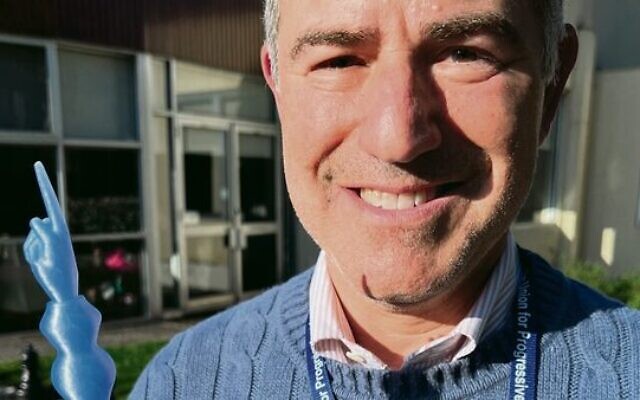‘Blue is the new silver’
Rosenthal believes that as Psalm 95 says "Asher lo hayam", the sea is God's, and we should treat it as such.
A JEWISH environmental group focusing on water has seen its “reverse tashlich” concept adopted as a religious practice around the world.
Tikkun HaYam’s director, Rabbi Ed Rosenthal, was recently in Australia to help run programs at Melbourne’s Temple Beth Israel, the Victorian Council of Christians and Jews and Sydney’s Emanuel Synagogue.
He said a few years ago an earlier Jewish diving organisation he led call ScubiJew began a program called Reverse Tashlich where instead of casting sins into the water, people would remove human sin from the water in the form of plastic and other marine debris.
“I decided that this was something that was not being addressed to the Jewish community, and I wanted to expand it so I started Tikkun HaYam for the purpose of sharing the spiritual wonders of water and the sea, from a Jewish perspective, to promote interfaith cooperation and understanding and to raise awareness about the many threats facing the aquatic environment,” he said.
Rosenthal believes that as Psalm 95 says “Asher lo hayam”, the sea is God’s, and we should treat it as such.
“Instead, we treat it as a garbage dump. We pump raw sewage, there’s too much nitrogen from fertiliser, there’s plastic pollution, we remove so much life. If anybody did to a synagogue what we do to the sea, there would be an outcry,” he said.
Reverse Tashlich started in 2016 with five students at Eckerd College in St Petersburg, Florida, and this year there are 270 registered teams in 22 countries on six continents.
Rosenthal said from the perspective of the mitzvah of ba’al tashchit (prohibition of wasteful destruction), Reverse Tashlich participants go out On Rosh Hashanah and remove debris from their local waterfronts.
“Emanuel in Sydney is doing it and Temple Beth Israel in Melbourne; we have Reform, Conservative and Orthodox communities involved, we have non-religious organisations that are involved, we’ve got Habonim, Bnei Akiva, Moishe House, and we just had the Abbaudaya community in Uganda registered to take part,” Rosenthal said.
Tikkun HaYam has branched out into recycling, and has created mezuzot, yads, tzedakah boxes and kiddush cups from recycled water bottles.
“They all have this beautiful blue tint to them, and we like to say that blue is the new silver.
“So, if you see a blue yad on a Sefer Torah, it says that this congregation cares about the water and the problems facing the sea,” Rosenthal said.


comments